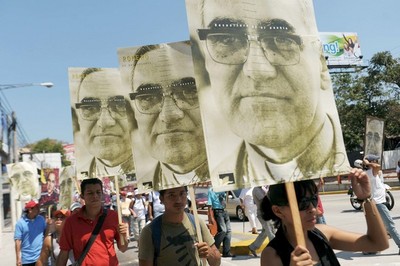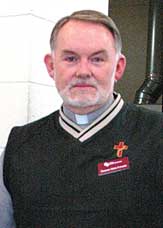
El Salvador made history today, three decades after the bloody event that gave the 20th century one of its most famous martyrs:
Thirty years after Archbishop Oscar Romero was assassinated as he celebrated Mass, a divided Salvadoran society still struggles over his legacy and the failure of authorities to punish the killers.
For the first time, the Salvadoran state is publicly commemorating Romero. Through most of this month, marches, concerts and debates have honored the priest whose slaying pushed El Salvador into a bloody civil war that pitted a U.S.-backed right-wing government against Soviet-backed leftist guerrillas. Tens of thousands of people were killed.
The political party that represented the guerrillas now governs El Salvador, after the nation’s first leftist president, Mauricio Funes, was elected a year ago. Funes’ election ended nearly two decades of rule by the rightist Arena party.
Marking the anniversary of Romero’s death, Funes on Wednesday asked forgiveness on behalf of the state for the assassination and “for the thousands and thousands of innocent victims” in the war that ended in 1992.
“This is something that should have been done a long time ago,” he said at a ceremony unveiling a colorful mural of Romero in San Salvador’s international airport. “It is my greatest wish that this act in the name of Msgr. Romero can serve to bring consolation and that we no longer live with resentments.”
Funes promised that in contrast to previous governments that “ignored” Romero’s life and teachings, his would “correct that historic error” and put an end to decades of “silence” that have enshrouded the killing.
There’s more at the link.

